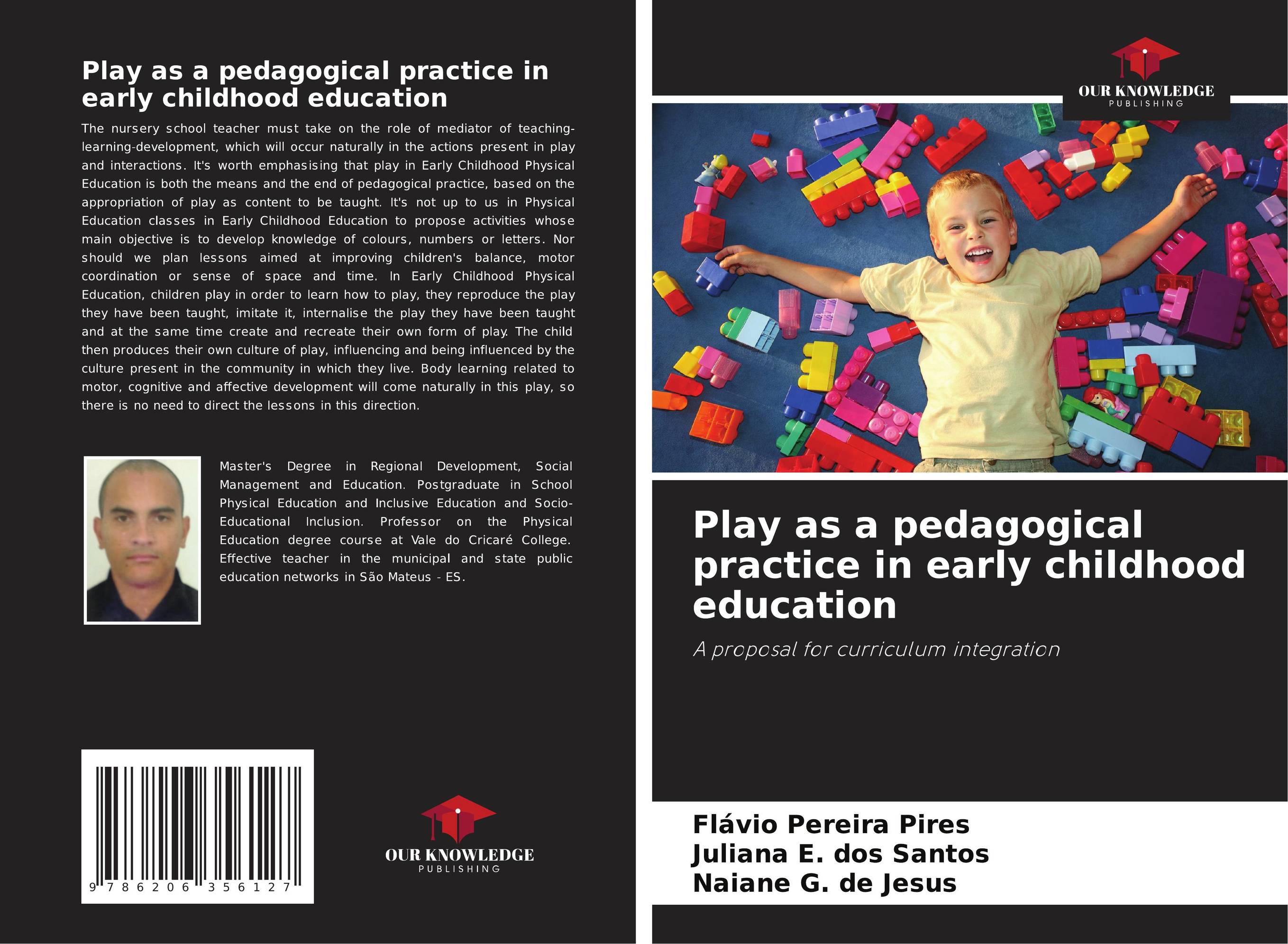| Поиск по каталогу |
|
(строгое соответствие)
|
- Профессиональная
- Научно-популярная
- Художественная
- Публицистика
- Детская
- Искусство
- Хобби, семья, дом
- Спорт
- Путеводители
- Блокноты, тетради, открытки
Play as a pedagogical practice in early childhood education. A proposal for curriculum integration

В наличии
| Местонахождение: Алматы | Состояние экземпляра: новый |

Бумажная
версия
версия
Автор: Flávio Pereira Pires,Juliana E. dos Santos and Naiane G. de Jesus
ISBN: 9786206356127
Год издания: 2023
Формат книги: 60×90/16 (145×215 мм)
Количество страниц: 60
Издательство: Our Knowledge Publishing
Цена: 24982 тг
Положить в корзину
Ожидает определения тематики
Код товара: 876171
| Способы доставки в город Алматы * комплектация (срок до отгрузки) не более 2 рабочих дней |
| Самовывоз из города Алматы (пункты самовывоза партнёра CDEK) |
| Курьерская доставка CDEK из города Москва |
| Доставка Почтой России из города Москва |
Аннотация: The nursery school teacher must take on the role of mediator of teaching-learning-development, which will occur naturally in the actions present in play and interactions. It's worth emphasising that play in Early Childhood Physical Education is both the means and the end of pedagogical practice, based on the appropriation of play as content to be taught. It's not up to us in Physical Education classes in Early Childhood Education to propose activities whose main objective is to develop knowledge of colours, numbers or letters. Nor should we plan lessons aimed at improving children's balance, motor coordination or sense of space and time. In Early Childhood Physical Education, children play in order to learn how to play, they reproduce the play they have been taught, imitate it, internalise the play they have been taught and at the same time create and recreate their own form of play. The child then produces their own culture of play, influencing and being influenced by the culture present in the community in which they live. Body learning related to motor, cognitive and affective development will come naturally in this play, so there is no need to direct the lessons in this direction.
Ключевые слова: Play, learning, Curriculum Integration



